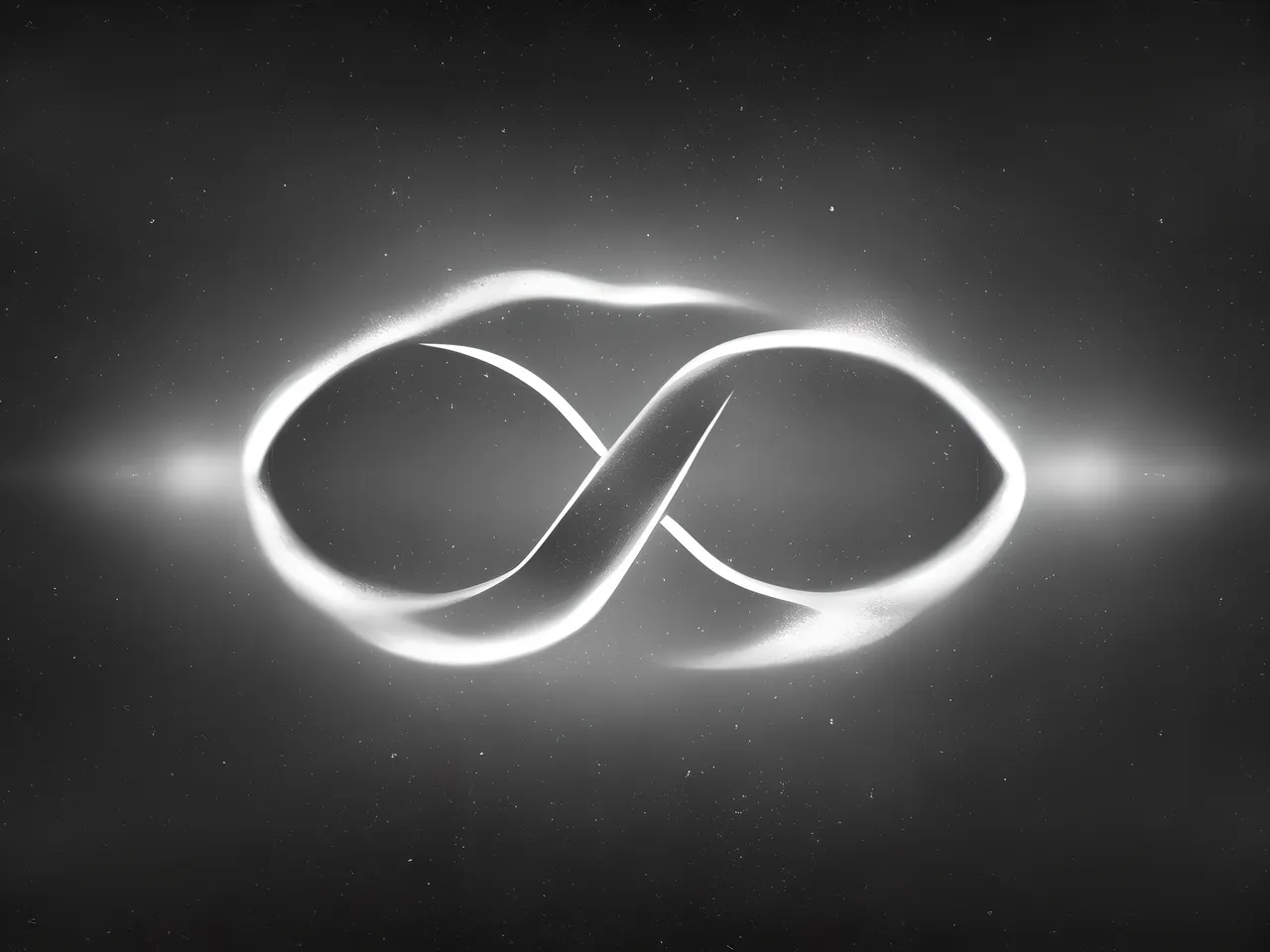Warum das Universum höchst wahrscheinlich nicht unendlich ist – Teil 1: Definitionen
Ist das Universum wirklich unendlich oder doch endlich? Das ist eine meiner Lieblingsfragen in der Kosmologie. Darüber habe ich auch schon auf einem Hive-Stammtisch diskutiert und jetzt möchte ich die Frage hier auf Hive ausführlicher behandeln.
Da die Fragestellung (eigentlich die Antwort) derart komplex und vielschichtig ist, habe ich mir gedacht, ich mache daraus eine Serie und bearbeite in jedem Teil einen konkreten Aspekt, um die Teile kürzer und übersichtlicher zu halten.
Die Mainstream-Meinung ist und auch viele Populär-Wissenschafter denken, dass das Universum wahrscheinlich unendlich ist, aber was sagt Albert Einstein dazu:
Zwei Dinge sind unendlich, das Universum und die menschliche Dummheit, aber bei dem Universum bin ich mir noch nicht ganz sicher.
Und was heißt Universum und unendlich überhaupt? Zunächst müssen wir also einmal klären, was man unter einem (un)endlichen Universum überhaupt versteht?
Teil 1: Definitionen
Das Universum ist die Gesamtheit von Raum, Zeit und aller Materie und Energie darin. Das Wort kommt aus dem Lateinischen (universus, Neutrum universum) und bedeutet so viel wie "Alles", "das Ganze", "Sämtliches".
Unendlich bedeutet in der Mathematik (Mengenlehre von Cantor), dass eine Menge unendlich viele Objekte beinhaltet.
Es gibt sogar zwei verschiedene Unendlichkeitsbegriffe. Abzählbar unendlich und nicht abzählbar unendlich, aber diese Unterscheidung ist hier nicht so wichtig, da es uns eher darum geht, ob das Universum überhaupt unendlich (egal wie unendlich) oder doch endlich ist.
Ein unendliches Universum würde also unendlich viel Materie und Energie, unendlich viele Sterne und Planeten beinhalten und wäre unendlich groß, während ein endliches Universum eine beschränkte Menge von Materie und Energie und auch eine beschränkte Raumzeit hätte.
Weiters unterscheiden wir noch zwischen dem beobachtbaren Universum (das was wir mit Teleskopen etc. wahrnehmen können) und dem gesamten Universum. In Folge meinen wir mit Universum immer das gesamte Universum, das mit dem Urknall entstanden ist.
Das Universum könnte, wenn es denn endlich wäre, zwar sehr, sehr groß sein, hätte aber eine beschränkte Anzahl an Galaxien, Sternen und Planeten und wäre auch nicht unendlich groß, unendlich alt etc.
Und dann gibt es auch noch die Multiverse-Theorie: außerhalb des Universums, (un)endlich viele weitere Universen.
In dieser Serie wollen wir uns auf unser Universum beschränken und klären, ob dieses unendlich oder endlich ist.
Spoiler: Ich denke mittlerweile sogar, dass das Universum sehr groß, aber eher nicht unendlich ist. Warum ich das denke, werdet ihr in den kommenden Teilen erfahren.
Was meint ihr? Ist das Universum unendlich oder endlich. Postet kurz ein Kommentar mit "endlich" oder "unendlich". Bin gespannt, ob sich eure Meinung nach dieser Serie ändern wird.

Is the universe infinite or rather finite? AI-generated illustration (Stable Diffusion)
English
Is the universe really infinite or finite after all? This is one of my favorite questions in cosmology. I've discussed it at a recent Hive meetup, and now I'd like to address the question in more detail here on Hive too.
Since the question (actually the answer) is so complex and multi-layered, I thought I'd make it a series and deal with one specific aspect in each part to keep the parts shorter and clearer.
The mainstream opinion is and also many popular scientists think that the universe is probably infinite, but what does Albert Einstein say about it:
Two things are infinite, the universe and human stupidity, but I'm not quite sure about the universe yet.
And what does universe and infinite mean in the first place? So first of all we have to clarify what is meant by an (in)finite universe?
Part 1: Definitions
The universe is the totality of space, time, and all matter and energy in it. The word comes from Latin (universus, neuter universum) and means something like "all," "the whole," "all of it."
Infinity is in mathematics (set theory of Cantor) the concept of a set with infinitely many objects.
There are even two different terms of infinity. Countably infinite and not countably infinite, but this distinction is not so important here, since it concerns us rather whether the universe is at all infinite (no matter how infinitely large) or nevertheless finite.
An infinite universe would contain infinitely much matter and energy, infinitely many stars and planets and would be infinitely large, while a finite universe would have a limited quantity of matter and energy and also a limited space-time.
Further we distinguish between the observable universe (what we can perceive with telescopes etc.) and the whole universe. In consequence we mean with universe always the whole universe which has originated with the big bang.
The universe could be, if it would be finite, very, very big, but it would have a limited number of galaxies, stars and planets in it and it would not be Infinitely big, Infinitely old etc.
And then there is also the multiverse theory: outside of the universe, (in)finitely many other universes. But that would be another topic.
In this series we want to limit ourselves to our universe and clarify whether it is infinite or finite.
Spoiler: In the meantime, I even think that the universe is very big, but rather not infinitely big. Why I think that, you will find out in the coming parts.
What do you think? Is the universe infinite or finite. Post a short comment with "finite" or "infinite". I'm curious if your opinion will change after this series.
Live your Secrets and Hive Prosper 🍯
xx Viki @vikisecrets